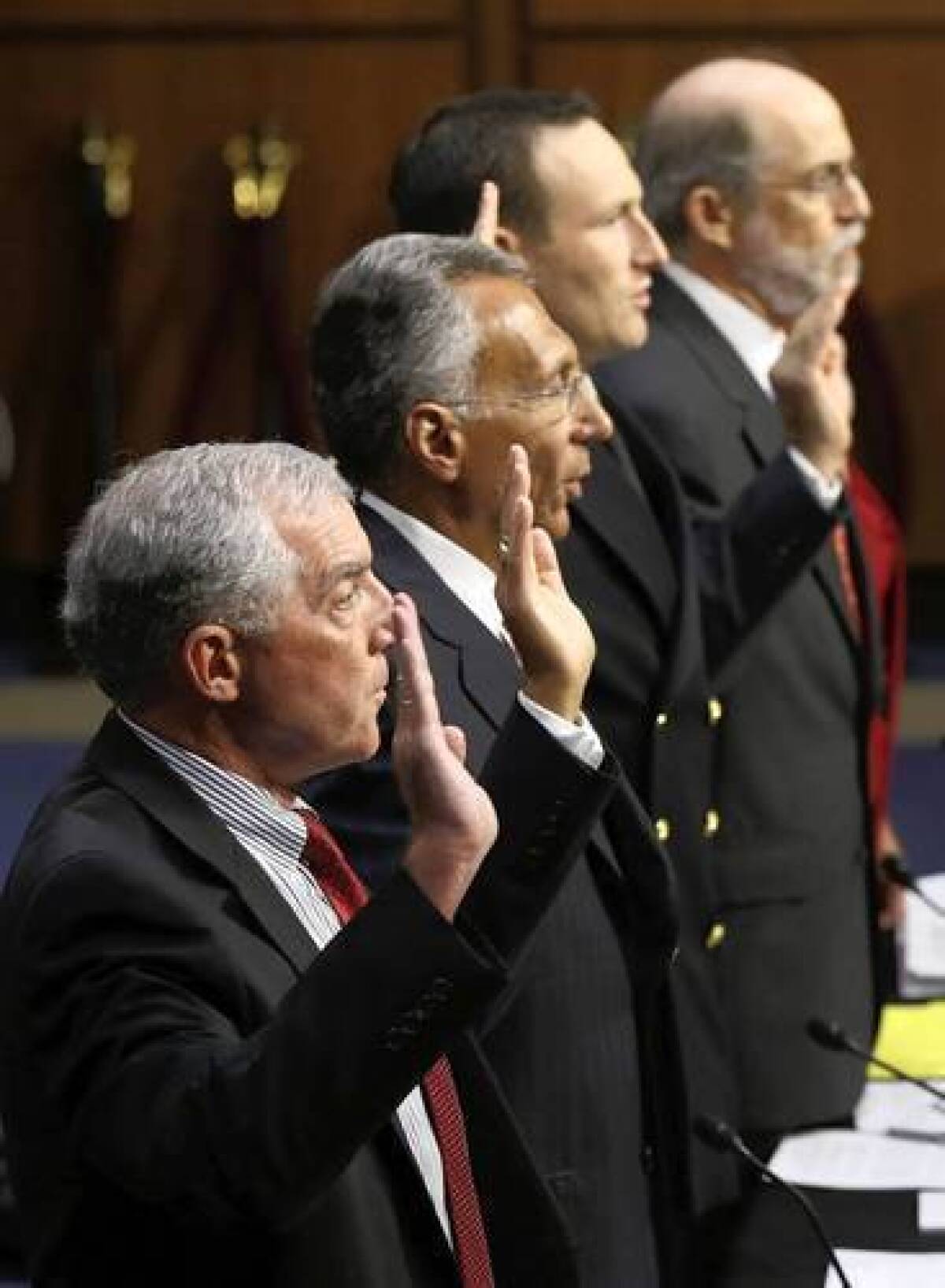Guantanamo Bay prison’s future divides Senate panel

- Share via
WASHINGTON — Sharp disagreement over the future of the Guantanamo Bay detention camp dominated the first Senate hearing on the issue in four years.
The meeting Wednesday of a Senate Judiciary Committee subcommittee, held in the wake of a high-profile hunger strike by inmates and renewed calls from President Obama to close the facility, made clear that deep partisan divisions remain over whether keeping the prison open is a threat to national security or a necessity.
Opened at a U.S. Navy base in Cuba in the months after the Sept. 11, 2001, terrorist attack, Guantanamo was established by President George W. Bush to hold detainees suspected of connections to global terrorism organizations.
Allegations of abuse and torture of inmates have led to repeated calls for Guantanamo’s closure, and Obama has campaigned twice on the issue, though Congress has passed repeated measures to keep the prison open.
Sen. Richard J. Durbin (D-Ill.), who is chairman of the panel, urged Congress to support Obama’s efforts, which would end the indefinite detention of prisoners without trial and either release them or charge them in American courts.
There are 166 detainees left at Guantanamo. Eighty-six were cleared for release in 2010, but remain imprisoned because Congress has refused to authorize funds for their removal. An additional 46 have been classified as impossible to put on trial.
Guantanamo “weakens our alliances, inspires our enemies and calls into question our leadership on human rights,” Durbin said. “The risk of keeping it open far outranks the risk of closing it.”
His comments were met with a strong rebuke from Sen. Ted Cruz of Texas, the subcommittee’s ranking Republican.
“I don’t believe the facts justify that rosy assessment,” he said.
Cruz said that released Guantanamo inmates had shown a 28% recidivism rate for terrorist activities and that those at the camp were unfit for placement in the general prison population, even at maximum-security facilities.
“Until we are presented with a good, viable strategy for what to do with terrorists who would work night and day to murder American citizens,” Guantanamo is our best option, he said.
Frank Gaffney, founder of the Center for Security Policy think tank, said that closing Guantanamo would be seen as an act of weakness and submission by Al Qaeda and could provoke attacks on the prisons where detainees were moved.
“How many Americans’ lives have been spared as a result” of the prison camp? he asked. “Are you feeling lucky?”
But Durbin said nearly 500 convicted terrorists are already held at federal prisons across the country — at a much lower cost than at Guantanamo.
According to Durbin, an estimated $454 million will be spent to keep Guantanamo open in 2013. That is equivalent to a cost of $2.74 million per detainee, compared with $78,000 per inmate at Florence in Colorado, the country’s most secure prison.
Retired Army Maj. Gen. Paul D. Eaton, who trained the Iraqi armed forces from 2003 to 2004, testified that by continuing to violate human rights and American law, the practices at Guantanamo proved more harmful to the U.S. national security interests.
“Guantanamo is a terrorist-creating organization,” he said to a reporter after the hearing. “It’s a terrific recruiting tool.”
The panel drew a large audience, including many protesters wearing orange jumpsuits who hoped to see the end of force-feeding of striking detainees and the closing of Guantanamo. At several points during the hearing, they cheered, clapped or shouted at witnesses, drawing warnings from Durbin.
More to Read
Sign up for Essential California
The most important California stories and recommendations in your inbox every morning.
You may occasionally receive promotional content from the Los Angeles Times.













